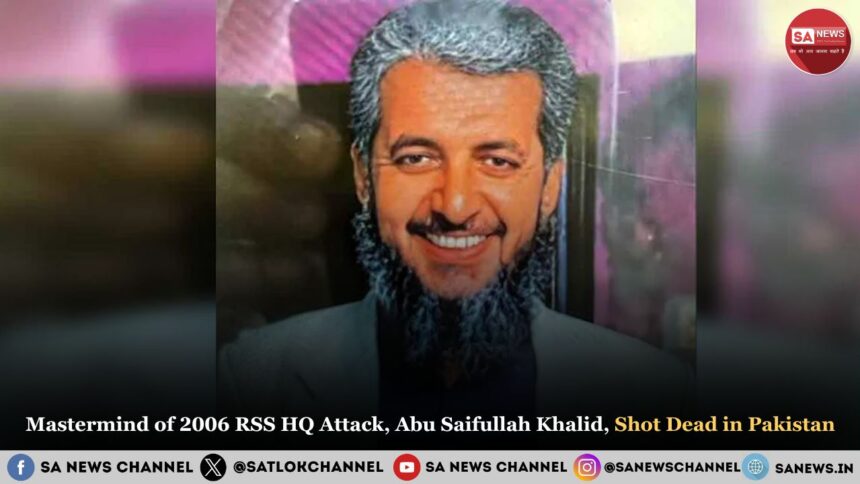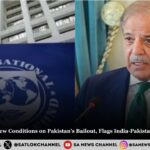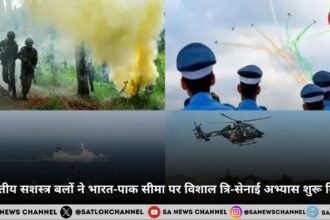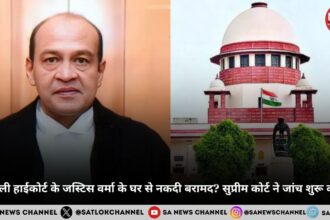Abu Saifullah Khalid, mastermind of the 2006 RSS HQ attack, was shot dead in Pakistan. His death disrupts Lashkar-e-Taiba’s terror operations, signaling progress in India’s fight against terrorism. Though his killing raises questions, it’s a reminder that true peace also depends on spiritual transformation and justice, beyond military action.
Who Was Abu Saifullah Khalid?
The death of Abu Saifullah Khalid, a key Lashkar-e-Taiba (LeT) terrorist, marks a significant moment in the fight against terrorism. Khalid was the mastermind behind several deadly attacks in India, including the 2006 attack on the Rashtriya Swayamsevak Sangh (RSS) headquarters in Nagpur. His unexpected killing in Sindh, Pakistan, has raised questions about the circumstances surrounding his death and its impact on terrorist operations.
Notable Attacks Orchestrated by Khalid:
- 2006 RSS Headquarters attack in Nagpur (foiled by Indian security forces).
- 2005 Indian Institute of Science (IISc) attack in Bengaluru (1 scientist killed, several injured).
- 2008 CRPF camp attack in Rampur (8 fatalities including 7 CRPF personnel).
Khalid, also known as Razaullah Nizamani and other aliases, played a critical role in recruiting for Lashkar-e-Taiba and facilitating cross-border terror operations.
How Was Khalid Killed?
Khalid was shot dead by unidentified attackers in Pakistan’s Sindh province near the Badni border crossing. He was traveling when his convoy was ambushed and he was killed by multiple gunshots.
Also Read: Operation Sindoor: India’s Retaliatory Strike After Pahalgam Terror Attack
Unanswered Questions:
- Was this a result of intra-group rivalry within Lashkar-e-Taiba?
- Did Pakistani intelligence have a role in his elimination?
- Was this an external covert operation?
While no official statement has emerged from Pakistan and no group has claimed responsibility, speculation continues to grow about the motive and perpetrators.
Impact of His Death
Khalid’s killing is a major setback for Lashkar-e-Taiba, as he was involved in:
- Recruitment and indoctrination of youth for terror activities.
- Cross-border logistics and training operations.
- Maintaining networks in Nepal, Kashmir, and Pakistan.
Disruption in LeT’s Infrastructure:
His absence may lead to:
- Reduced efficiency in planning terror attacks.
- Slowdown in recruitment and financing operations.
- Greater difficulty in international coordination of sleeper cells.
Security forces in India may now have an edge in dismantling remaining networks that were linked to Khalid’s command.
India’s Stand on Khalid’s Death
While the Indian government has yet to release a formal statement, experts across the intelligence community view this development as a strategic gain in the long war against terrorism.
Security Implications for India:
- One less top-level threat for Indian national security.
- A signal that terrorist masterminds are not untouchable, even on foreign soil.
- Motivation for continued vigilance and counter-terror operations.
Though Khalid’s death does not erase the trauma of past terror attacks, it offers symbolic justice to those affected.
Conclusion
The killing of Abu Saifullah Khalid is a major moment in counter-terrorism efforts. While the circumstances remain unclear, what is certain is that his elimination weakens a dangerous terror network. Whether this incident is an isolated killing or part of a broader strategy against terror groups in Pakistan remains uncertain. For India, the fight against terrorism is ongoing, and such developments are small but meaningful steps in protecting national integrity.
Spiritual Reflection: Sant Rampal Ji Maharaj’s Gyan on the Root of Violence
In the context of such global violence and terrorism, Sant Rampal Ji Maharaj’s spiritual teachings provide a unique and deeply thought-provoking perspective. According to His true spiritual knowledge drawn from all major holy scriptures, the root of violence, hatred, and destruction lies in ignorance of true devotion and the worship of demonic or incomplete deities.
Key Teachings Relevant to Terrorism and Peace:
- True worship (Sat-Bhakti), as guided by a Tatvdarshi Saint, eradicates hatred from the heart and promotes universal brotherhood.
- Acts of terrorism and injustice stem from false religious beliefs and political manipulation. Only true spiritual knowledge can correct this.
- A society guided by scripture-backed devotion and moral values will naturally reject violence and foster peace, prosperity, and unity.
Sant Rampal Ji Maharaj teaches that by following the correct path of worship as outlined in sacred texts like the Gita, Quran, Bible, and Guru Granth Sahib, individuals and nations can achieve inner transformation, which in turn reflects in social harmony and global peace.
Thus, while eliminating terrorists addresses external threats, eliminating spiritual ignorance is what ultimately removes the internal seed of hatred and division—laying the foundation for a truly peaceful world.









